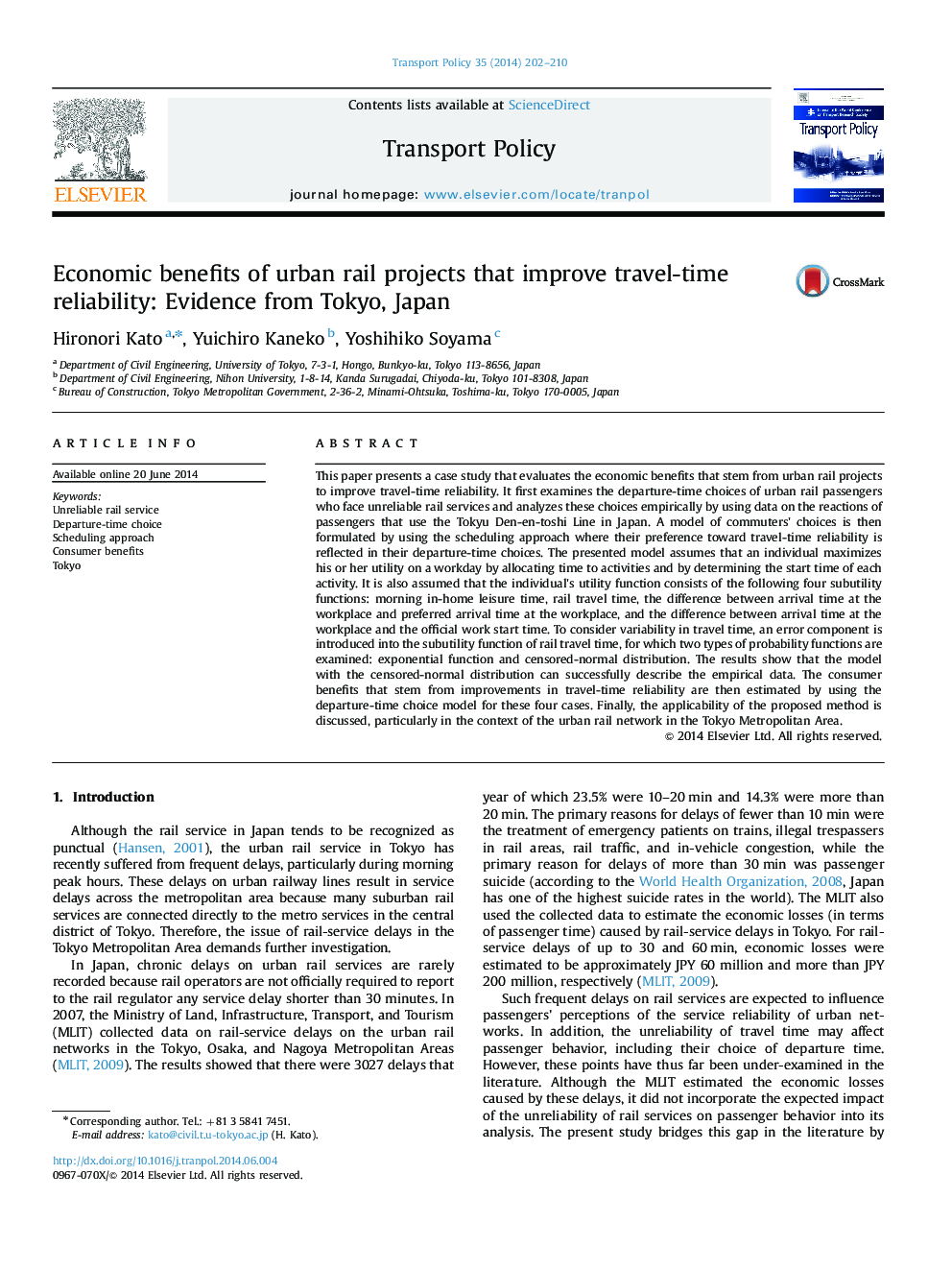| کد مقاله | کد نشریه | سال انتشار | مقاله انگلیسی | نسخه تمام متن |
|---|---|---|---|---|
| 1064874 | 1485842 | 2014 | 9 صفحه PDF | دانلود رایگان |
• Case study of the economic benefits of unreliability reduction in rail travel time.
• Application of a departure-time choice model to urban rail traveler behavior.
• Model estimation using empirical data collected in Tokyo in November 2009.
• Numerical examples of consumer benefits based on the estimated model.
• Discussion of policy implications in the context of the urban railway in Tokyo.
This paper presents a case study that evaluates the economic benefits that stem from urban rail projects to improve travel-time reliability. It first examines the departure-time choices of urban rail passengers who face unreliable rail services and analyzes these choices empirically by using data on the reactions of passengers that use the Tokyu Den-en-toshi Line in Japan. A model of commuters׳ choices is then formulated by using the scheduling approach where their preference toward travel-time reliability is reflected in their departure-time choices. The presented model assumes that an individual maximizes his or her utility on a workday by allocating time to activities and by determining the start time of each activity. It is also assumed that the individual׳s utility function consists of the following four subutility functions: morning in-home leisure time, rail travel time, the difference between arrival time at the workplace and preferred arrival time at the workplace, and the difference between arrival time at the workplace and the official work start time. To consider variability in travel time, an error component is introduced into the subutility function of rail travel time, for which two types of probability functions are examined: exponential function and censored-normal distribution. The results show that the model with the censored-normal distribution can successfully describe the empirical data. The consumer benefits that stem from improvements in travel-time reliability are then estimated by using the departure-time choice model for these four cases. Finally, the applicability of the proposed method is discussed, particularly in the context of the urban rail network in the Tokyo Metropolitan Area.
Journal: Transport Policy - Volume 35, September 2014, Pages 202–210
